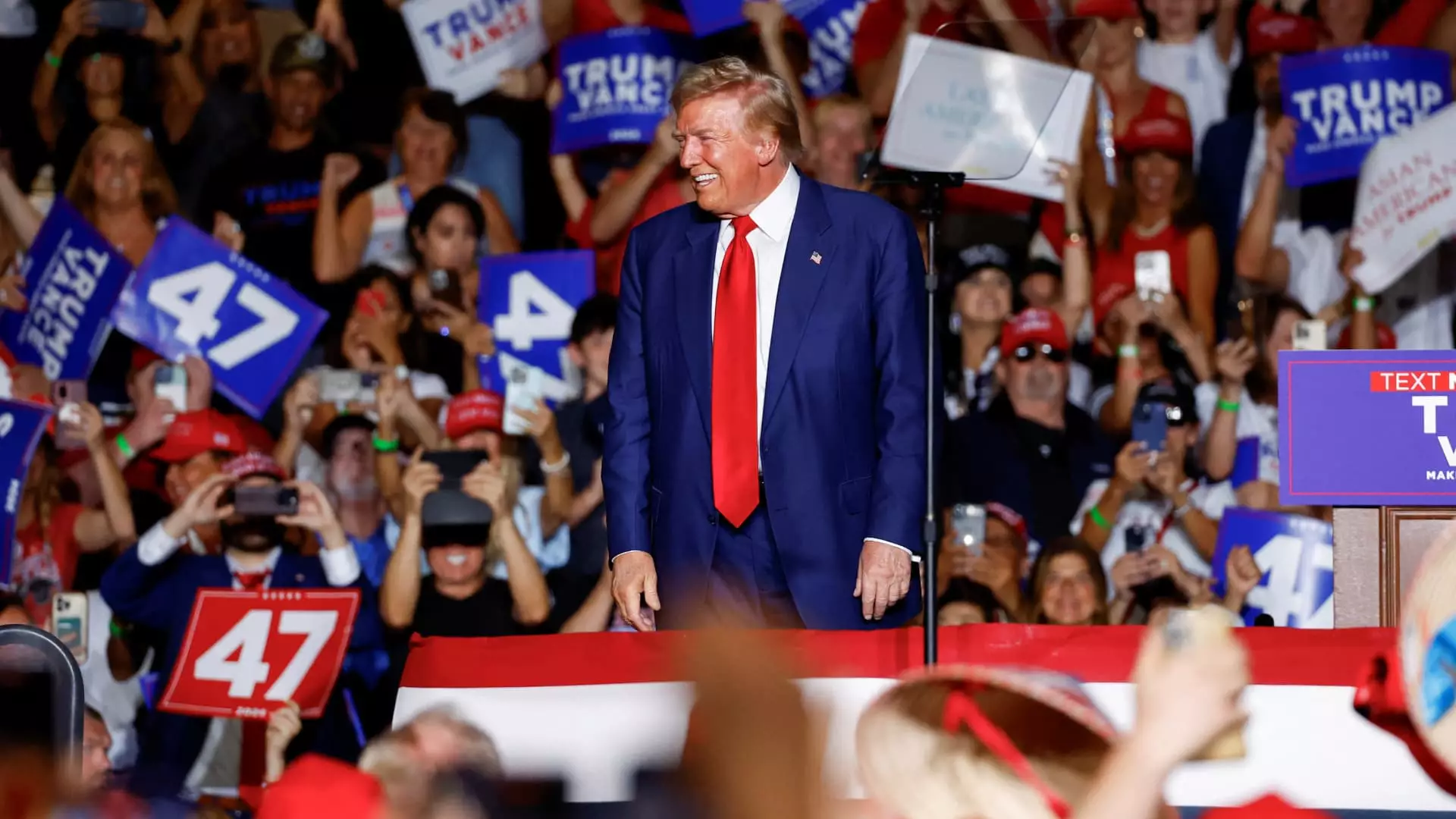On a day that marked pivotal political choices for many Americans, shares of Trump Media & Technology experienced an electrifying rise, stimulating conversations among investors regarding the company’s future under a potential second Trump presidency. Predominantly operating under the ticker DJT, a representation of Donald Trump’s initials, the company has become emblematic of the broader political climate as its financial prospects are intimately tied to the electoral fortunes of the former president. This correlation provides insight into how political narratives can dramatically alter market valuations, particularly in industries that are so closely aligned with individual personas.
During the early hours of trading on Election Day, DJT stock showcased a remarkable increase of approximately 8.2% in premarket trading. This surge unfolded against the backdrop of a tumultuous campaign season, in which Trump Media experienced significant fluctuations. Over the years, the value of its shares nearly doubled, reflecting retail investor enthusiasm driven by the company’s narrative and Trump’s unwavering fan base. However, recent movements reveal underlying volatility; shares plummeted by 33% within a week, only to rebound by 12% on the preceding Monday. Such sharp oscillations underscore the precariousness of investing in a company whose performance is swayed by external political factors rather than strictly financial metrics.
A notable aspect of Trump Media’s stock dynamic has been the influx of retail traders, particularly those engaging on platforms like Reddit’s WallStreetBets. The community made famous for its role in the GameStop stock frenzy has turned its gaze toward DJT, trading it with a fervor reminiscent of their previous exploits. Chief global strategist Jay Woods remarked on this phenomenon, likening the trading environment to “GameStop on steroids.” Such comments reflect a broader trend in which retail traders wield significant power to influence stock prices in a manner traditionally dominated by institutional investors. This democratization of finance creates an unpredictable market landscape, often leading to massive spikes or declines that could leave conventional investment analysis in the dust.
Current polling data, such as the latest NBC News survey indicating a neck-and-neck race between Trump and Vice President Kamala Harris—with both receiving 49% backing from likely voters—adds another layer of complexity to the trading of DJT. As the political contest unfolds, investors must grapple not only with the dynamics of the stock but also with the looming uncertainties of electoral outcomes. Should Trump regain the presidency, the potential for Trump Media’s prosperity could become more pronounced, further inflating its stock value. Conversely, a loss could deflate expectations and lead to substantial losses for investors who bet on Trump’s electoral success.
The stock performance of Trump Media & Technology serves as a fascinating case study reflecting the intersection of politics and finance. As market dynamics continue to evolve in response to the political landscape, investors will need to remain vigilant, understanding that the ramifications extend far beyond conventional financial parameters. The story of DJT is not just about stock prices—it is a lens into the future of political risk management in investment strategies.

Leave a Reply